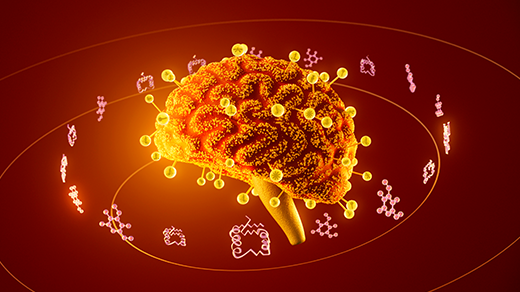What's up in
Immunology
Latest Articles
The Year in Biology
Biologists used artificial intelligence to make discoveries about molecules and the brain, and overturned long-held assumptions about the immune system and RNA.
The Brainstem Fine-Tunes Inflammation Throughout the Body
The evolutionarily ancient part of the brain that controls breathing and heart rate also regulates the immune system — a discovery about the brain-body axis made by experts on taste.
During Pregnancy, a Fake ‘Infection’ Protects the Fetus
Cells in the placenta have an unusual trick for activating gentle immune defenses and keeping them turned on when no infection is present. It involves crafting and deploying a fake virus.
Nobel Prize Awarded to mRNA Vaccine Scientists
Katalin Karikó and Drew Weissman have been awarded the 2023 Nobel Prize in Physiology or Medicine for discoveries leading to mRNA vaccines, such as those that protect against Covid-19.
How Many Microbes Does It Take to Make You Sick?
Exposure to a virus isn’t an all-or-nothing proposition. The concept of “infectious dose” suggests ways to keep ourselves safer from harm.
What Has the Pandemic Taught Us About Vaccines?
Should Covid-19 vaccines be judged by how well they prevent disease or how well they prevent death? Anna Durbin, a public health expert and vaccine researcher, talks with Steven Strogatz about the science behind vaccines.
Can Our Brains Be Taken Over?
Several real-life pathogens can change a host’s behavior against their will. Here’s what we know about these zombie-like infections.
What Causes Alzheimer’s? Scientists Are Rethinking the Answer.
After decades in the shadow of the reigning model for Alzheimer’s disease, alternative explanations are finally getting the attention they deserve.
What We Know About Monkeypox
Even though we’ve learned a lot about this relative of smallpox, some mysteries remain due to a lack of political will.








